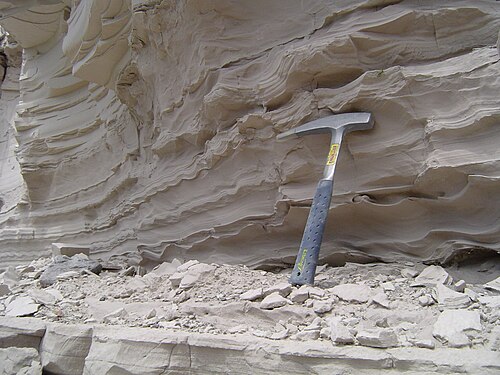Sedimentnoun
A collection of small particles, particularly dirt, that precipitates from a river or other body of water.
Sedimentverb
(transitive) To deposit material as a sediment.
Sedimentverb
(intransitive) To be deposited as a sediment.
Sedimentnoun
The matter which subsides to the bottom, from water or any other liquid; settlings; lees; dregs.
Sedimentnoun
The material of which sedimentary rocks are formed.
Sedimentnoun
matter deposited by some natural process
Sedimentverb
deposit as a sediment
Sedimentverb
settle as sediment
Sedimentnoun
matter that settles to the bottom of a liquid; dregs
Sedimentnoun
particulate matter that is carried by water or wind and deposited on the surface of the land or the seabed, and may in time become consolidated into rock
Sedimentverb
settle as sediment
Sedimentverb
(of a liquid) deposit a sediment
Sedimentverb
deposit (something) as a sediment
Sediment
Sediment is a naturally occurring material that is broken down by processes of weathering and erosion, and is subsequently transported by the action of wind, water, or ice or by the force of gravity acting on the particles. For example, sand and silt can be carried in suspension in river water and on reaching the sea bed deposited by sedimentation; if buried, they may eventually become sandstone and siltstone (sedimentary rocks) through lithification.
Leesnoun
The sediment that settles during fermentation of beverages, consisting of dead yeast and precipitated parts of the fruit.
Lees
Dregs. See 2d Lee.
Leesnoun
A leash.
Leesnoun
the sediment from fermentation of an alcoholic beverage












